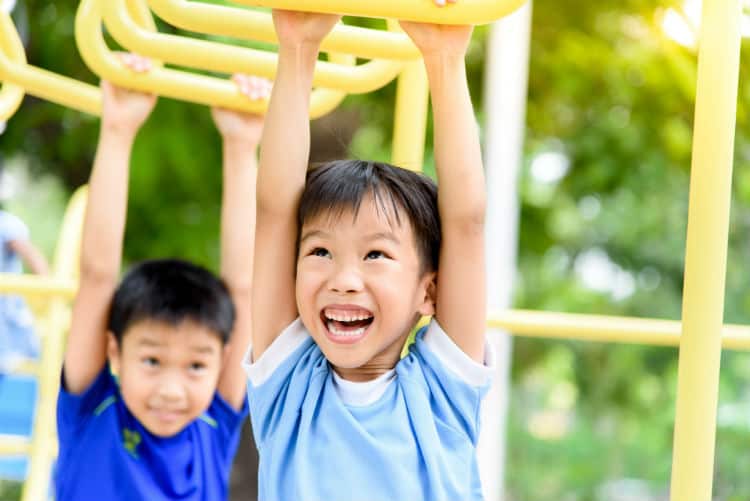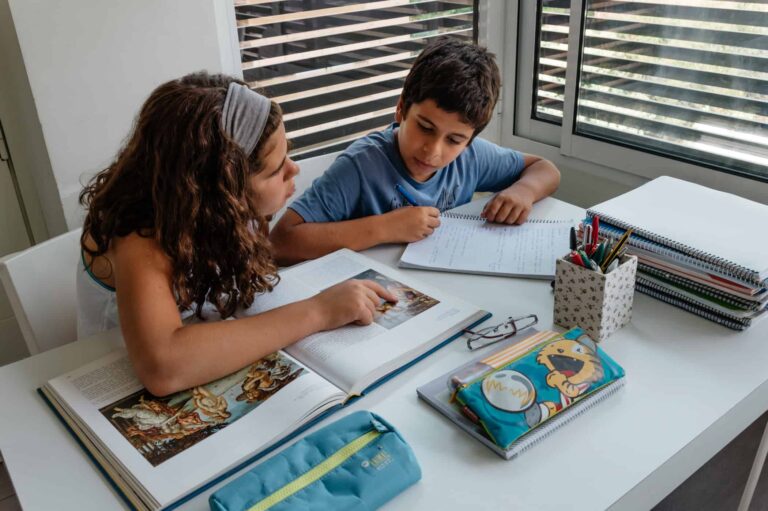One of the wishes that parents have for their children is that they grow up to be kind and to be treated with kindness in return. Parents, if you’ve been thinking about ways to teach your kids to be kind, we have suggestions to help you start that journey.
1. Be kind to yourself.
It’s crucial that you keep in mind that children learn by example. If you want kind kids, you need to model that kindness in your interactions with them and with others. Your children will pay attention to how you treat everyone: your spouse, your neighbor, the cashier at the grocery store, and the servers at your favorite restaurant. If your children see you treat people with thoughtfulness and respect, they will, too.
2. Pay attention to the language that you use.
It’s not only what you do, it’s what you say that matters. When we are angry or frustrated, we tend to use harsh language. Keep in mind that as your children are paying attention to your behavior, they are also paying attention to the words that accompany it. If you do or say something that is unkind, acknowledge that and apologize.
You also want to give children the words to express themselves in ways that are kind. For example, if one of your children calls another “stupid,” you want to validate his frustration with his sibling: “Danny, I know that you are angry that your sister took your book away, but can you tell her that she upset you and ask her nicely to give it back to you?”
If your children are a bit older, you can ask them questions that encourage them to think about the feelings of others: “Emma, how do you think it made Danny feel when you took his book from him?” “Danny, how do you think it made Emma feel when you called her, ‘stupid’?”
3. Name and appropriately acknowledge acts of kindness.
When your young child shares her toy truck with her brother, you can tell her, “Emma, it is kind that you shared your truck with your brother.” This will help her (and her brother) name and label acts of kindness that they do and that others do for them.
As children get older, and understand what kindness is, you’ll also want them to know that kindness is a behavior that we should all strive to embody and expect from ourselves and others, and so is not something that always garners praise. Acknowledge your child’s efforts that are out of the ordinary and require intention and effort, such as raising money for a local charity.
4. Acknowledge kids’ assistance.
Chances are, your young children like helping you out around the house. Even though they are likely to be not as fast as you, or as neat, thank them for their help. (You can do this without going overboard!) This allows them to understand that kindness is appreciated, and they will be more likely to want to help you and others out in the future.
5. Assign chores.
Because children like helping out others and feeling capable, giving them manageable, age-appropriate chores allows them to develop their confidence, and understand the importance of pitching in around the house. Give them individual chores (cleaning their rooms), but don’t forget about group chores (raking leaves, or straightening up the living room). The latter allow them to learn how to work together and help others to achieve a shared goal.
6. Encourage children to get out of their comfort zone.
Children are more likely to learn empathy when they are in a position to more directly consider and witness the experiences and feelings of others. You might consider having your children engage in volunteer activities (or paying jobs when they are old enough) in the community.
That will allow them to meet, work with, and assist people they’ve not met, and people whose lived experiences are different from their own. Even better, make volunteering an activity that your entire family does together.
7. Teach your children to respect the Earth, too.
We’ve all been to a park or other outdoor spot and seen litter on the ground rather than in the (often-present) garbage cans. Teach your children that, as they are expected to clean up their messes at home, they should also clean up after themselves outdoors.
Help them recycle, too. If you’re out on a walk and see litter on the ground, pick it up and dispose of it properly (and, of course, wash your hands when you get home).
8. Read together!
Reading is a wonderful shared activity–you and your children can take turns reading aloud to one another. Find books that will introduce your children to new ideas, people, and places. Find books that highlight the importance of healthy caring relationships with oneself, with family, with friends, and with strangers. Visit your local public library and ask the children’s librarian for recommendations!
Parents, are you interested in a free reading evaluation for your child? Contact Read Smart today, and let your child have the advantage with the top reading tutor program in Tulsa!





